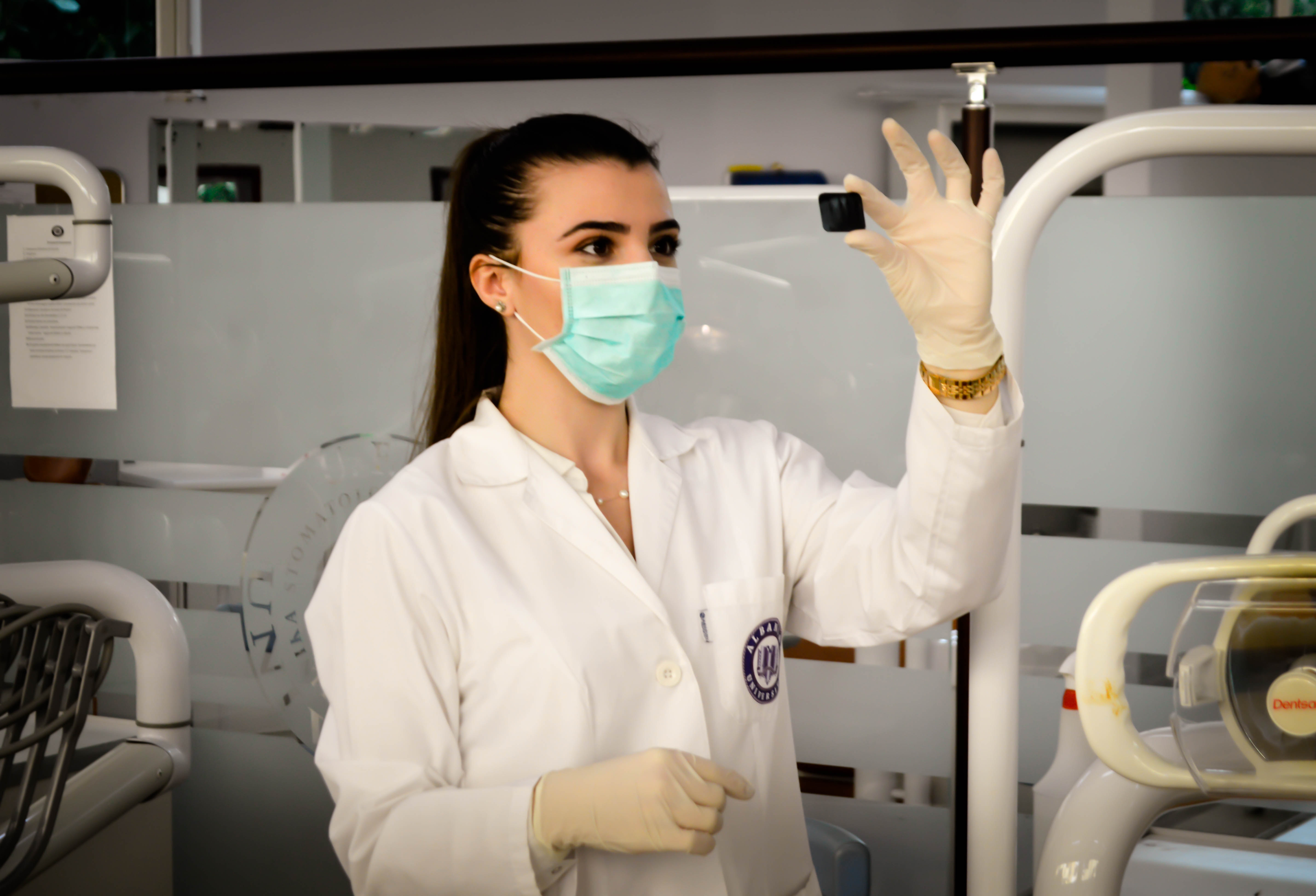By Luisa De la Concha Montes
A couple of weeks ago, Gair Rhydd published an article about Donna Strickland, the first woman to receive the Nobel Prize for physics in 55 years. The article raised questions about the representation of women in science, and as a result, we decided to investigate whether or not gender representation impacts STEM students in Cardiff University.
The main purpose of this article is to answer the question of whether or not there is an issue of female representation in Cardiff University; and if there is, discuss its possible effect on students. We decided to conduct a poll in order to include as many student voices as possible, and avoid simplistic assumptions of gender disparities. However, it is significant to note that we only received 30 responses, 13 of which identified as being male. Therefore, this sample does not necessarily reflect the concerns of the STEM student population as a whole. Nevertheless, it is vital to us to show these responses because they raise important questions that can help us delve into a wider discussion and gain further insight into the concerns of the student population.
Poll Results
The demographic of the participants surveyed included students from various STEM degrees, such as Biological Sciences, Physics (Astrophysics and Medical Physics included), Engineering (Software, Civil, Mechanical, and Architectural), Dentistry, Environmental Geography, Biology and Neuroscience.
When asking the participants if there were any factors that made them think twice about studying a STEM subject, 80% of them answered “No” and 20% answered “Yes”. Participants were invited to expand on their answer if they wished to do so. Among the comments received, various concerns were raised, such as: “Being rejected or not taken seriously by academics due to my background”, the fact that “Not all STEM jobs pay very well” and “What my work environment would be after my degree. What the work life would be like during my degree. As a woman, I knew I would be in the vast minority”.
When asked if they felt that there was a problem of misrepresentation in the people studying their degree, 70% answered “Yes. (More men than women)”; 13.3% answered “Yes. (More women than men)”, and 16.7% answered “No. (Equal representation)”; however, when asked if this was an issue that affected their performance, 93.3% of the participants argued that it wasn’t. Additionally, one of the comments that was received regarding this, argued that achieving a 50/50 balance should not be an aim in Universities, and later on, in work environments: “People are more than genders and it shouldn’t matter when choosing a career. By drawing attention to genders you are just adding to the problem. Start looking at people by their skills”. In contrast, the comments from those that did think the misrepresentation affected their performance, outlined concerns such as intimidation: “It’s a bit intimidating, I feel like I can’t ask for help or ask questions”; and the need to outperform men in their course: “I work harder to outperform or be to the standard of the men in my course.”
The student’s main worries about starting a professional life were: 60% “competitiveness of the field”; 36.7% “financial gain”; 33.3% “finding a job that allows me to fit in my personal needs (eg: having a family)”; and 26.7% “not having enough qualifications”. Concerns such as “finding a job I’d enjoy” and “not being taken seriously due to bias” were also added to the additional comments section.
When asked, 100% of the students felt they were supported by their friends and family. In addition to this, various additional comments were received, for instance: “My family would have supported me in any career choice”; “I was never questioned over whether the decision to do a STEM degree was the right one, or whether I was capable of it”; “I went to an all-girls school and had brilliant support behind me to reach for any degree that I chose, so when I chose one in STEM I had all the support I could have asked for” and “One of my A level science teachers encouraged me to go into physics as there are not many female physicists.”
In terms of studying and working habits, we asked students if there was anything that they had stopped doing because of their gender, such as participating in class, asking questions and asking for extra help. Of the answers received, 86.7% answered “No”. Supplementary comments regarding the question included: “Attending extracurricular presentations. The last one I attended I stayed to speak to the academic at the end and as I began speaking I was barged into by an elder male attendee who talked over me. It was very frustrating but I felt I couldn’t say anything as he was clearly in a superior position”, and “Putting makeup on because a few guys made quite a few sexist comments about my ability to do work”.
Finally, participants were asked if they thought there is a general misrepresentation of women in STEM fields, to which 66.7% answered “Yes”. Amid the comments received on how misrepresentation can be improved, various ideas were proposed. The main ones suggested tackling the issue through encouraging women to get involved with sciences from a young age, ensuring that there are more female role-models and making it easier for women to work around childcare. Comments also included: “I feel that in my Biomedical sciences degree there is an equal mix of men and women, and I have never felt like the male students have an advantage over me just because they are men. However, I do understand that in other STEM subjects there is not such an even balance of men and women”; “Having come from a job with some fairly macho colleagues, I’ve found that a lot of guys themselves can be uncomfortable with the atmosphere it creates. The so called ‘locker room talk’ definitely isn’t for everyone, even among guys themselves”, “I hear a lot about misrepresentation of women in the field but I really don’t feel it. I haven’t seen a woman being slowed down, or conversely, haven’t seen a man pushed up because of gender. My school has a 60-40 Female-Male ratio, and my department is something around 70 or 80% Female.”
Along with the results of the poll, we also interviewed two lecturers and researchers in the Physics department at Cardiff University, Dr. Philip Buckle and Dr. Annabel Cartwright to know their thoughts on the matter.
Interview with Philip Buckle and Annabel Cartwright
Q: Since you started working at Cardiff University, have you noticed any changes in the number of women getting engaged with STEM, and more specifically, with Physics?
P.B: General activity has increased, but to be honest Cardiff has always had a good representation of female undergraduates, and this has not really changed in the last eight years I have been here (it has however, not gone up). I don’t know why we seem successful in keeping a healthy level of female undergraduates compared to some other universities, but we seem to. We also have prominent female professors which helps greatly.
A.C: I can only speak about Physics. The number of female students is staying at around the 25-30% level, which is typical of physics departments across Britain. Staffing gender ratio is much better than it used to be. When I came here in 2004 we had only one female staff member and no professors. We now have four female Professors, and six more female staff at the Lecturer/Senior Lecturer level.
Q: From your personal experience as a researcher, would you say that there is an issue of misrepresentation of women in this area? If so, what might the reasons for this be?
P.B: This is a difficult question to answer. My wife is a PhD qualified physicist, but if you ask her she will tell you she is a physicist, not a woman physicist. In general (and this is of course a sweeping statement) I think it is wider society that misrepresents female scientists, as opposed to the attitudes of other scientists. Look for example at the Big Bang Theory, the female scientist is nerdy and quirky. The female non-scientist is supposedly the cute, beautiful and ‘normal’ one. I realize that this is for comedic license, but this is the misrepresentation of women in science from the outside. Within the discipline, although is not perfect, is a lot healthier than in the society as a whole. Misrepresentation of females in science however is not so dissimilar to males in the same way (look at the male characters in the Big Bang Theory as well). So, I think there is a misrepresentation of scientists in general. I place some of the problems with school education. Science is seen as a serious subject, not associated with any kind of leisure activity or fun, whereas, art, sport, languages and humanities are associated with fun to most people. Science really is only done for ‘work’
A.C: The number of women in physics departments is certainly nowhere near 50%. The problems start at school, where females do not choose physics at GCSE and then A level. Once they are at University they do very well, and they are just as likely as the male students to go on to a PhD or academic career.
Q: Do you have any proposals or ideas on how to tackle the issue of misrepresentation of women in STEM fields in the UK?
P.B: Equality of opportunity is paramount, but care should be taken to avoid discrimination, or the slightest hint of it. There is nothing more insulting to a woman than the accusation that they have achieved something simply because of their gender. Therefore, equality in opportunity is paramount. If there continues to be disparities, then we must look to wider education and training, we should not be artificially engineering the end result of years of social training. We must address and tackle the social training.
A.C: There is a lot going on here, through the Institute of Physics ‘Juno’ project and Athena Swann. We always make sure that any outreach activity we do with Schools involves female students and members of staff. We also include images of women on all our publicity, choose the wording of adverts very carefully, etc.
Q: To your knowledge, is (or has) Cardiff University developed any strategies to get more women involved in STEM fields?
P.B: There have been a number of initiatives, and as I say we have prominent female professors, including our main outreach officer Prof. Haley Gomez. The School also hosts a spin out company run by Wendy Sadler who was awarded the MBE to services to science and the promotion of women in STEM subjects. It is therefore seen as a high priority that the school achieve Juno accreditation (Institute of Physics accreditation for an equal opportunity and diversity environment).
A.C: See above- all STEM schools are very much aware of gender issues and other minorities who are under-represented in particular subjects
Q: As someone that directly engages with Physics students, would you say that gender misrepresentation can affect their University experience, academic performance and/or future career opportunities?
P.B: Yes and no. Firstly, the questions here are awkward in that they assume misrepresentation. Avoiding prejudice without evidence is paramount. It is prejudice without evidence that leads to inequality and resentment. It is also important that gender issues do not become a crutch to lean on to explain other failings of any system. When a female has any issue, we should not be looking to blame gender bias straight away. It could be general. For example, a female student may have failed a course because of some unconscious bias, but she could also fail a course through poor teaching or lack of support. Both are issues, and we should not overlook all others and focus on gender necessarily. The bigger picture is that it is societal pressures that most impact women in science, and providing a working environment which eases these pressures and accommodates them naturally, without resentment (child birth being the obvious example) is essential. Once again, science can show an enlightened leading role in this, but it is as much a wider societal issue that needs to be solved.
A.C: This is much better than it used to be. Now we have several senior, high profile female role models in our School, I think our female students are much more likely to think that a career in Physics is something that people like them actually do.
Both Dr Cartwright and Dr Buckle pointed us toward Project Juno, an initiative that aims to recognise and reward physics departments, schools, institutes and organisations that can demonstrate that action has been taken to address gender equality. Cardiff University currently holds the Juno Practitioner status, which demonstrates (through qualitative and quantitative data) that the path to become a Juno Champion is well underway. This, alongside Prof. Haley Gomez contributions, who is part of the WISE Committee in Wales, which collaborates with industrial and academic partners to encourage UK girls to pursue a career in STEM, and the fact that the University currently holds 15 Athena SWAN awards; which recognize the University’s commitment to advancing the careers of women STEM in higher education and research, demonstrates that the University is well aware of what is expected from them in terms of gender equality.
Finally, the poll’s results clearly reflect that there is not a 50/50 representation in all STEM subjects, but they, along with comments from Dr Cartwright and Dr Buckle, also show that this is not necessarily something that is affecting student’s academic performance and University experience. Because of this, we should be wary not to interpret these results as proof of an existing problem of sexism in the sciences, especially since few Schools achieve a 50/50 ratio. With the exception of a few comments, it was generally demonstrated that students do feel supported on their decisions, which is extremely gratifying. As Dr Buckle emphasized, it is important to be aware of the issues around gender representation, but it should not be used as a crutch to forget other important concerns. To actively demand the University to engage in compromises and activities that aim to tackle inequality is as important as avoiding general and simplistic assumptions of an existing problem of sexism in STEM fields.





Add Comment